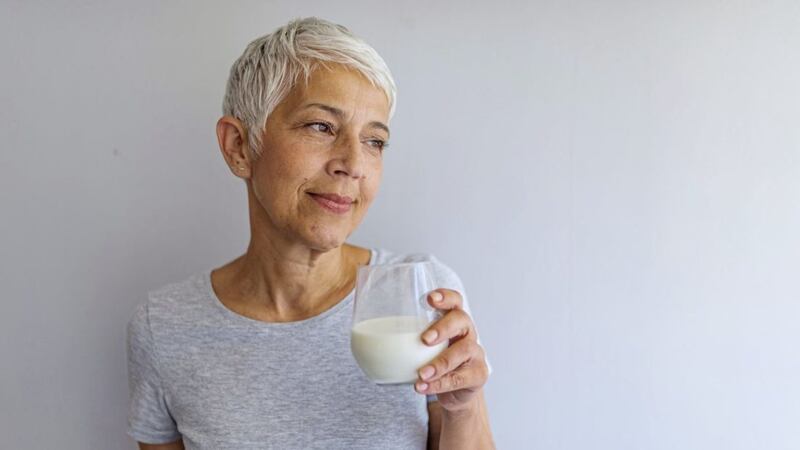IT USED to be a taboo subject. A dark and dirty secret that women never talked about. Thankfully times have changed and now society is more open about how the menopause affects women and their loved ones.
Tomorrow is World Menopause Day and Ireland’s first 'menopause coach', Catherine O’Keefe (wellnesswarrior.ie), is hosting a week of online talks to help women make sense of it all. Catherine has created a schedule packed with talks from some of Ireland’s leading experts in women’s health for a fantastic line-up of interviews spread over five days.
I spoke to Catherine this week ahead of her event to discuss the power of nutrition at this time in a woman’s life; she told me that participitants would be discussing many aspects of menopause, including from a medical perspective, as well as listening to women’s stories.
"Whatever your symptom, it will be covered throughout the week," she said.
:: What is the menopause?
The official definition of the menopause is when a woman has not had a menstrual period for 12 months in a row. For many women this occurs somewhere between the age of 45 and 55.
For many women, it can be difficult to know if you are going through menopause, especially if you already have irregular periods or have been on the pill.
Although the menopause gets talked about a lot, it's the years leading up to it (known as the perimenopause) when most women start to notice the effects of changing hormones on their body.
Last week I ran a webinar for a group of women in perimenopause and asked what symptoms people were noticing. The responses ranged from anxiety and stress, low mood and headaches to joint pain, fatigue and bad skin.
:: What can you do to help yourself?
Every woman is different. Some will sail through the perimenopause years without too much trouble, but for others the effects can have a devastating effect on her life – at home, in work, her social life, and relationships.
Women do not have to suffer like this. There is help out there and people like Catherine are breaking ground in encouraging people to seek help and talk about the perimenopause in an honest and open way.
Of course, my focus is how diet and lifestyle can help women help themselves, so here are my five hot tips for female hormone balance:
1 Cut back on sugar:
Sugar plays havoc with our hormones, so this is the first and most important change you can make to help strike a better balance.
2 Eat some phytoestrogen-rich foods:
Flaxseed and chickpeas are top of my list as hormone-balancing foods. Aim to have flaxseed in your diet most days and pulses like chickpeas a few times a week for best results.
3 Eat enough fats:
Hormones are made of fat (and protein) so eat healthy fats with most meals – nuts and seeds, oily fish, olive oil, avocado and coconut oil are my favourites.
4 Cut the caffeine:
There is good evidence to show that caffeine can trigger hot flushes and anxiety, so cut back and see if you notice the difference.
5 Don’t skip meals:
Eat at regular intervals – three meals a day to make sure you are well nourished. Skipping meals will trigger adrenalin and anxiety – so not a good idea.
:: A time of change:
The ‘change of life’ is time to focus on change. It can be an opportunity to focus on your health and wellbeing and make changes for the good of your health, that are also likely to help you manage symptoms better too.
Whether your focus is nutrition, slowing things down a little or exercising, lifestyle is an essential part of hormone balance.
:: Catherine’s Menopause Week starts on Monday – you can listen to all the talks and interviews here: https://www.wellnesswarrior.ie/menopause-week-2020








